Moving Beyond Conventional EHRs Towards Collaborative Health Solutions
In today's rapidly shifting healthcare landscape, community health stands at a pivotal intersection. Traditional tools, once the cornerstone of patient-provider interactions, now confront the frontier of innovation—an era that demands health technology surpassing the capabilities of conventional EHRs and case management tools. Today's community health requires a solution that is not only adaptive and collaborative but also future-proof with the latest technology to meet specific organizational needs.
Community health is expansive, transcending the boundaries of individual care. It weaves together the environmental, social, and economic fabrics that define a community's well-being. This inclusive approach is crucial; it allows us to delve into the root causes of health issues, carving paths to sustainable, long-lasting solutions.
The Imperative for Community Health:
Focus on Prevention: Community health champions preventive care, aiming to reduce the incidence of chronic diseases and foster healthier lifestyles.
Incorporating SDOH to Address the Full Spectrum: By zeroing in on Social Determinants of Health (SDOH), initiatives in community health aim to rectify health disparities and elevate the quality of life.
Evolution of Managed Care: Medicaid Managed Care has emerged as a beacon system, prioritizing cost predictability, streamlined care, and a patient-centered framework—essentials for effective preventive services and meticulous health outcomes tracking.
Building Robust Public Health Systems: The pandemic has underscored the criticality of a resilient public health infrastructure, showcasing the necessity for both proactive measures and flexible response capabilities.
A Call for Advanced Health Technology Solutions:
As community health complexities surge, the tools for managing this domain must mirror the dynamism and intricacy of the challenges they seek to address. Traditional EHRs and case management systems, once innovative, now reveal their constraints. Originating from a period where healthcare equated to individual patient-provider exchanges within the confines of an EHR, these tools are ill-suited for the collaborative, interactive, and extensive needs of modern community health.
Community health's inherent complexity, encompassing everything from SDOH to widespread public health endeavors, demands tools designed for interaction, not just documentation; for engagement, not mere recording. This is the shortfall of traditional healthcare tools in the contemporary healthcare landscape—a landscape that calls for the management of records and, more importantly, the facilitation of real-time, collaborative health interventions.
A New Era for Health Management Technology: What is Needed?
A visionary platform is ascending to meet the diverse needs of health programs, delivering unmatched versatility for health initiatives. Precision-engineered to serve healthcare providers' specific needs, this platform adapts in concert with the healthcare landscape. It melds the latest technological innovation with open interoperability, crafting a secure, scalable, cloud-based health management ecosystem that facilitates care delivery across various platforms, clouds, and devices.
Redefining the Platform Approach:
Unified Health Program Ecosystem: This new-era technology platform consolidates various health programs into one integrated ecosystem, in stark contrast to isolated point solutions that can cause data fragmentation. This approach eradicates data silos, solidifies data integrity, and heightens security across the healthcare spectrum.
Integrating SDOH for Comprehensive Care: The platform embraces Social Determinants of Health (SDOH), recognizing that socioeconomic conditions are critical to health outcomes. This allows for more targeted and effective strategies to improve health.
Fostering Community Health Networks: Shifting from traditional systems that emphasize documentation, the platform advocates for active collaboration, linking patients, healthcare providers, and community organizations in a joint health journey.
Future-Ready and Interoperable: Forward-looking and flexible, the platform boasts extensive interoperability, integrating seamlessly with current and future technologies, thus keeping healthcare delivery at the forefront of innovation.
Agile Deployment and Responsiveness: The platform stands out for its swift deployment capabilities, indicative of an acute awareness of the urgency in healthcare delivery. It ensures a rapid transition from concept to clinical application and is highly responsive to the ever-changing healthcare environment, ensuring that health programs remain consistently relevant and efficacious.
In conclusion, the need for innovative, practical health technology solutions is clear—a new type of platform is necessary, one that aligns with the expansive mission to elevate community health to new heights.
About Aztute:
Aztute's platform reimagines community health administration by replacing traditional paperwork with a responsive, modern system. It harnesses data, collaboration, and educational tools to efficiently manage health programs, focusing on the wider social and economic health determinants. This agile design allows quick adaptation to changing health scenarios, empowering organizations to better address their communities' diverse health needs.


